BOOK EXTRACT
The close, secret ties that bound Israel to apartheid South Africa
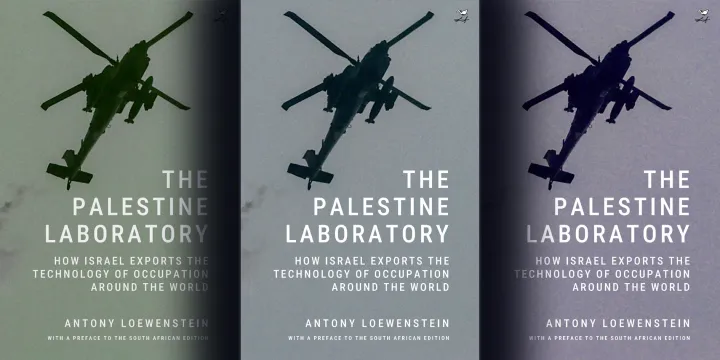
This extract from the book, ‘The Palestine Laboratory: How Israel Exports the Technology of Occupation Around the World’, sheds light on how close the political, ideological and military relationship was between the two countries.
The contradiction at the heart of the Jewish state has had little impact on its success. Nonetheless, being Jewish in Israel is far more dangerous than living as a Jew in almost any other place on Earth. This lack of safety is not because of Judaism, but because of the political and military posture of the nation.
“It is a democracy in which one must be Jewish to enjoy full civic rights,” writes filmmaker, photographer, and scholar Haim Bresheeth-Žabner in his 2020 book, An Army Like No Other: How the Israel Defense Forces Made a Nation. “Zionism has marked the move away from many small European, Jewish ghettos to a modern, large and powerful ghetto setting itself apart. This particular ghetto has failed in its utopian project of building a Jewish existence without the goy [non-Jew].”
This can be seen in Israel’s relationship with Africa. Many African states had backed Israel after 1948 as a noble anticolonial struggle. They related to its cause. One of the least known aspects of this dynamic, just before the Six-Day War, was Israel’s support for the campaign against white minority rule in Rhodesia, now Zimbabwe. Israel condemned the regime led by white nationalist Ian Smith after his unilateral declaration of independence in 1965 and supported a military and civilian boycott of the regime.
But Israel’s advocacy was not due to a love of African self-determination, but was rather a calculated decision to gather support in Africa against what it perceived as Arab and communist “defamation”. Israel was also interested in exploiting Africa’s natural resources and immediately set about building relationships with pliant leaders in the Central African Republic after it declared independence from France in 1960.
Declassified documents from Israel’s state archives indicate that it provided training to rebel groups fighting racism in Rhodesia, though the exact nature of the training is unknown, and some officials backed armed struggle. Israel’s ambassador to Zambia, Ben Zion Tahan, sent a telegram on 23 November 1965 that was unequivocal: “In my opinion, terrorism is the main way, although it is the most difficult for the fighters.”
When the first leader of Zimbabwe, Robert Mugabe, visited Israel in 1964, he thanked the Jewish state for its support of his resistance movement and expressed a desire for his fighters to get Israeli training in guerrilla warfare.
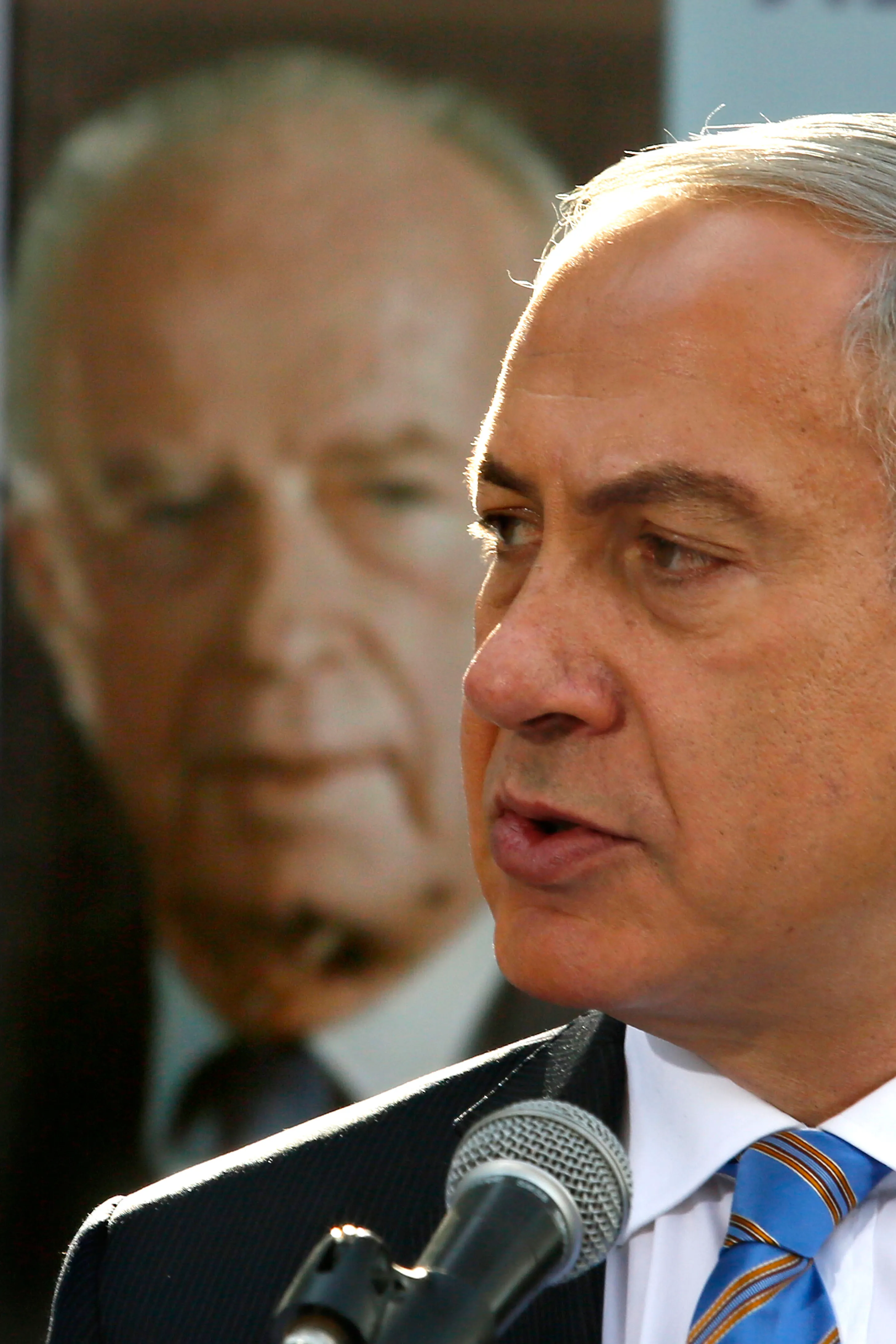
Israeli Prime Minister Benjamin Netanyahu speaks during an official ceremony on 16 October 2013 marking the 18th anniversary of the assassination of Yitzhak Rabin (in the background). Rabin had invited BJ Vorster to visit his country. (Photo: Gali Tibbon / Getty Images)
An ally in apartheid South Africa
After 1967, Israel’s interest in liberation movements waned and its support for them became far less effective as it turned into an occupier itself. However, there was no better political, military, diplomatic and ideological alliance between like-minded nations than Israel and apartheid South Africa.
The apartheid regime in Pretoria took power in 1948 and soon put in place Nazi-style restrictions on non-whites, from forbidding marriage between the races to barring blacks from many jobs. The South African Jewish community was strongly pro-Israel and became its biggest financial backer per capita after 1948.
A majority of these Jews benefited from South African apartheid and supported its continuation. A small but notable minority bravely opposed it and joined the African National Congress (ANC) in its campaign for liberation.
By the time the South African and Israeli governments cemented a political, ideological and military relationship in the 1970s, often centred on weapons that had been developed and tested by the Israeli military, many in the ruling Israeli Likud party felt an affinity with South Africa’s worldview.
As journalist and author of The Unspoken Alliance, Sasha Polakow-Suransky writes, it was an “ideology of minority survivalism that presented the two countries as threatened outposts of European civilisation defending their existence against barbarians at the gate”.
One of the prominent Jewish dissidents was Ronnie Kasrils, who served as the minister of intelligence between 2004 and 2008 under an ANC government. He told The Guardian that the comparison between the two nations wasn’t accidental.
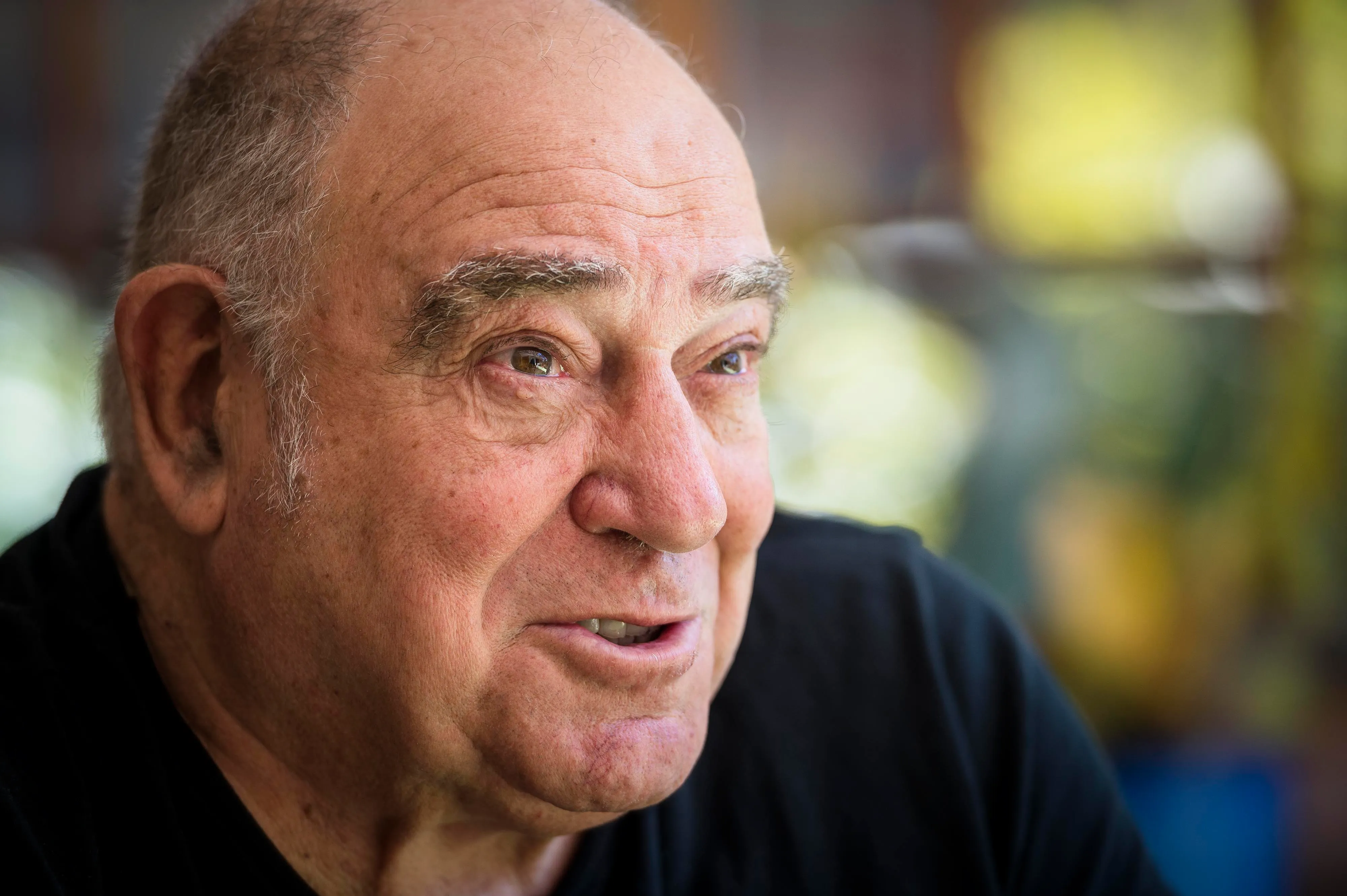
Former intelligence minister Ronnie Kasrils in Johannesburg on 31 August 2016. (Photo: Cornel van Heerden / Gallo Images)
“Israelis claim that they are the chosen people, the elect of God, and find a biblical justification for their racism and Zionist exclusivity,” he said. “This is just like the Afrikaners of apartheid South Africa, who also had the biblical notion that the land was their God-given right.
“Like the Zionists who claimed that Palestine in the 1940s was ‘a land without people for a people without land’, so the Afrikaner settlers spread the myth that there were no black people in South Africa when they first settled in the 17th century. They conquered by force of arms and terror and the provocation of a series of bloody colonial wars of conquest.”
The relationship became so close by the mid-1970s that Israeli Prime Minister Yitzhak Rabin invited South African Prime Minister John Vorster to visit. Vorster had been a Nazi sympathiser and member of the fascist Afrikaner group Ossewabrandwag during World War 2. In 1942, he proudly expressed his admiration for Nazi Germany.
Yet when Vorster arrived in Israel in 1976, he was feted by Rabin at a state dinner. Rabin toasted “the ideals shared by Israel and South Africa: the hopes for justice and peaceful coexistence”. Both nations faced “foreign-inspired instability and recklessness”, he said.
A few months after Vorster’s visit, the South African government yearbook explained that both states were facing the same challenge: “Israel and South Africa have one thing above all else in common: they are both situated in a predominantly hostile world inhabited by dark peoples.”
The relationship between the nations was broad, but also sworn to secrecy. In April 1975, a security agreement was signed that defined the relationship for the next 20 years. A clause stated that both parties pledged to keep its existence concealed.
Alon Liel, a former Israeli ambassador to Pretoria and head of Israel’s foreign ministry’s South Africa desk in the 1980s, said that the Israeli and South African relationship was vital for both countries’ defence industries, turning them into major global players. Liel argued that many in the Israeli security establishment convinced themselves that Israel as an occupying nation could not have survived without Afrikaner support. He and another former Israeli ambassador to South Africa, llan Baruch, wrote in 2021 that Israel was an apartheid state that took inspiration from pre-1994 South Africa.
“We created the South African arms industry,” Liel explained. “They assisted us to develop all kinds of technology because they had a lot of money. When we were developing things together we usually gave the know-how and they gave the money.
“After 1976, there was a love affair between the security establishments of the two countries and their armies. We were involved in Angola as consultants to the army. You had Israeli officers there cooperating with the army. The link was very intimate.”
Israel ignored the UN Security Council-imposed arms embargo on South Africa while telling the world that it was complying. The deputy director of Israel’s Ministry of Foreign Affairs, Hanan Bar-On, sent a telegram to the ministry director, David Kimchi, on 29 August 1984 to explain: “The Israeli policy … is that we do not in any way admit [such sales] to an Israeli or to a foreign actor and certainly not to an American Congressman, even if he is considered a friend and the relationship with him is supposedly intimate.”
Brothers in nuclear arms
The most secretive aspect of the relationship was the mutual support given to each other’s nuclear capability. France and Britain provided essential materials in assisting Israel to develop nuclear weapons and full-scale production began after the Six-Day War. With an abundant supply of uranium, South Africa had a solid base on which to build its own stockpile, but Israel provided the technical expertise.
According to former Israeli intelligence officer Ari Ben-Menashe, South Africa allowed Israel to test nuclear weapons in the Indian Ocean in 1979, though Israel denied doing so. Israel even offered to sell nuclear warheads to South Africa in the 1970s (in a deal that did not go ahead). Declassified documents indicate that South Africa wanted the weapons to potentially hit neighbouring states, as a deterrent from attack.
South African Prime Minister PW Botha and Israeli Defence Minister Shimon Peres colluded in an agreement to keep the deal completely secret. A 1974 letter from Peres to South Africa claimed that they both had a “common hatred of injustice” and he pushed for a “close identity of aspirations and interests”. By the 1980s, Israel was South Africa’s main arms supplier.
Washington was initially not fully aware of the extent of Israel’s nuclear collaboration with South Africa, and Israel’s secretiveness continues to this day – its nuclear facility at Dimona has never been inspected by the International Atomic Energy Agency. Israel is presumed to have more than 200 nuclear weapons.
During the first meeting between US President Joe Biden and then Israeli Prime Minister Naftali Bennett in August 2021, Washington reaffirmed the long-standing understanding that it would not pressure Israel to join the Nuclear Non-Proliferation Treaty, or to give up its weapons. Israel agreed not to conduct any nuclear tests or threaten nuclear strikes while maintaining its “nuclear ambiguity”.
In 1971, the New York Times columnist CL Sulzberger wrote that Israel and South Africa had become so close that he had heard an unconfirmed rumour that “a South African mission flew to Israel during the Six-Day War to study tactics and use of weapons.”
Vorster told the columnist that Israel faced its own “apartheid problem”, namely how to manage the Arabs. “Neither nation,” wrote Sulzberger, “wants to place its future entirely in the hands of a surrounding majority and would prefer to fight.”
Ideological friends too
The mutually beneficial relationship was not just about the ability to make money from the defence sector. It was also an ideological affinity about how to treat unwanted populations.
South Africa’s Bantustans, areas where black residents lived without autonomy, inspired many in the Israeli elite as a viable model for Palestine. This was the desire to isolate “undesirable” Palestinians in noncontiguous enclaves, Bantustans cut off from the rest of the country – in other words, like today’s West Bank, where 165 Palestinians “enclaves” are strangulated by Israeli colonies, the Israeli Defense Forces and violent settlers.
During the apartheid era, Israeli diplomats were instructed around the world to tell the media that the Jewish state didn’t recognise the Bantustans. This was a lie, as a telegram by the deputy director of the Ministry of Foreign Affairs, Natan Meron, on 23 November 1983 proved: “It is no secret that Israeli political figures and public figures are involved in one way or another, directly or indirectly, in economic activity in the Bantustans.”
Using South African apartheid-era rhetoric to defend the Israeli occupation remains alive to this day. During the 2019 Israeli election campaign, opposition leader Benny Gantz criticised Prime Minister Benjamin Netanyahu for banning US Congresswomen Ilhan Omar and Rashida Tlaib from entering Israel and the Palestinian territories.
Instead, Gantz said, both women should have been allowed to see “with their own eyes” that “the best place to be an Arab in the Middle East is in Israel … and the second-best place to be an Arab in the Middle East is the West Bank”.
This was reminiscent of Vorster’s statement to the New York Times in 1977 that “the standard of living of the South African black is two to five times higher than that of any black country in Africa”. One of the architects of apartheid in South Africa, former prime minister Hendrik Verwoerd, wrote in the Rand Daily Mail in 1961 that “Israel, like South Africa, is an apartheid state” after taking Palestine from the Arabs who “had lived there for a thousand years”.
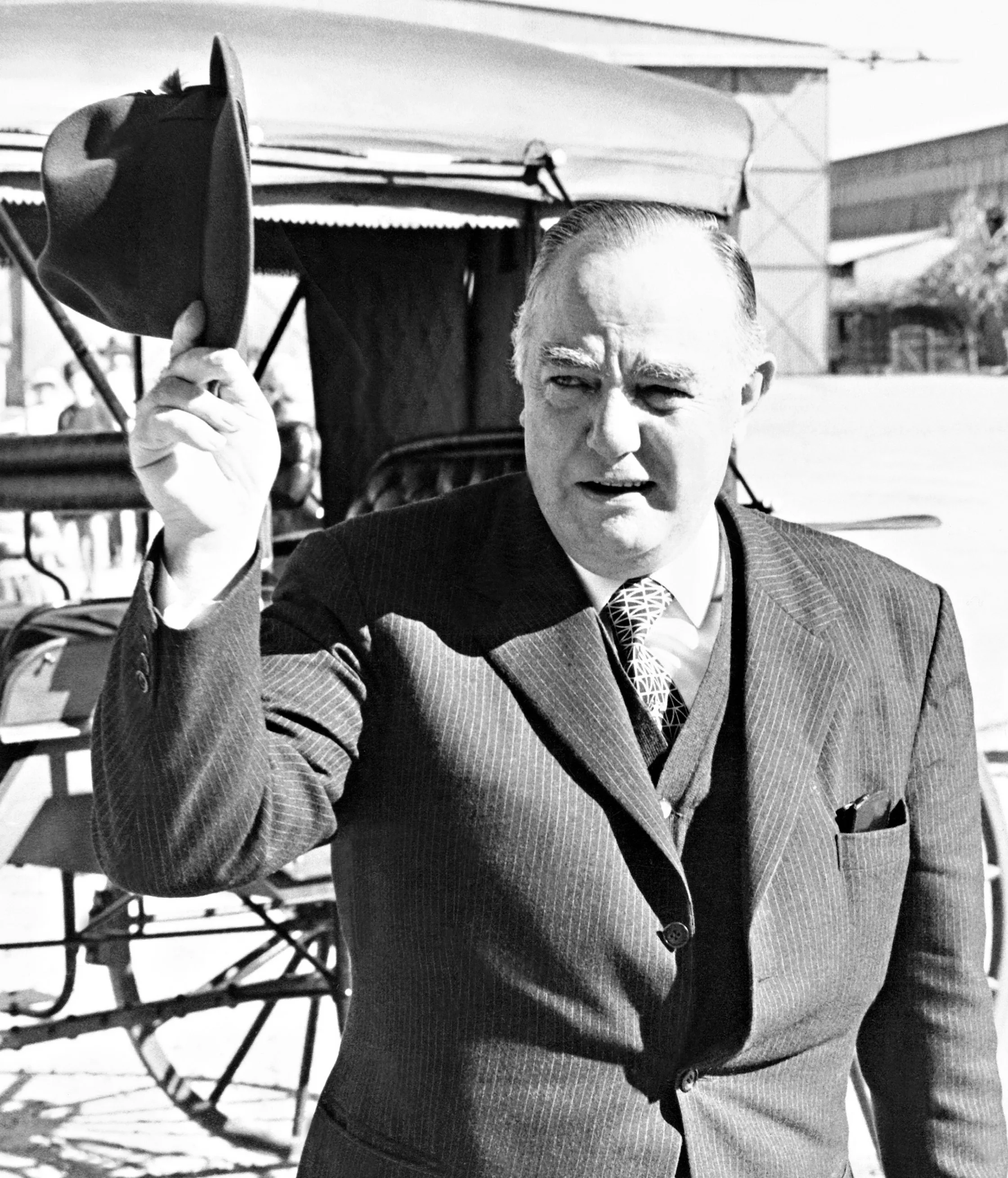
Prime Minister BJ Vorster on 17 June 1972. He was invited to visit Israel in 1976. (Photo: Gallo Images)
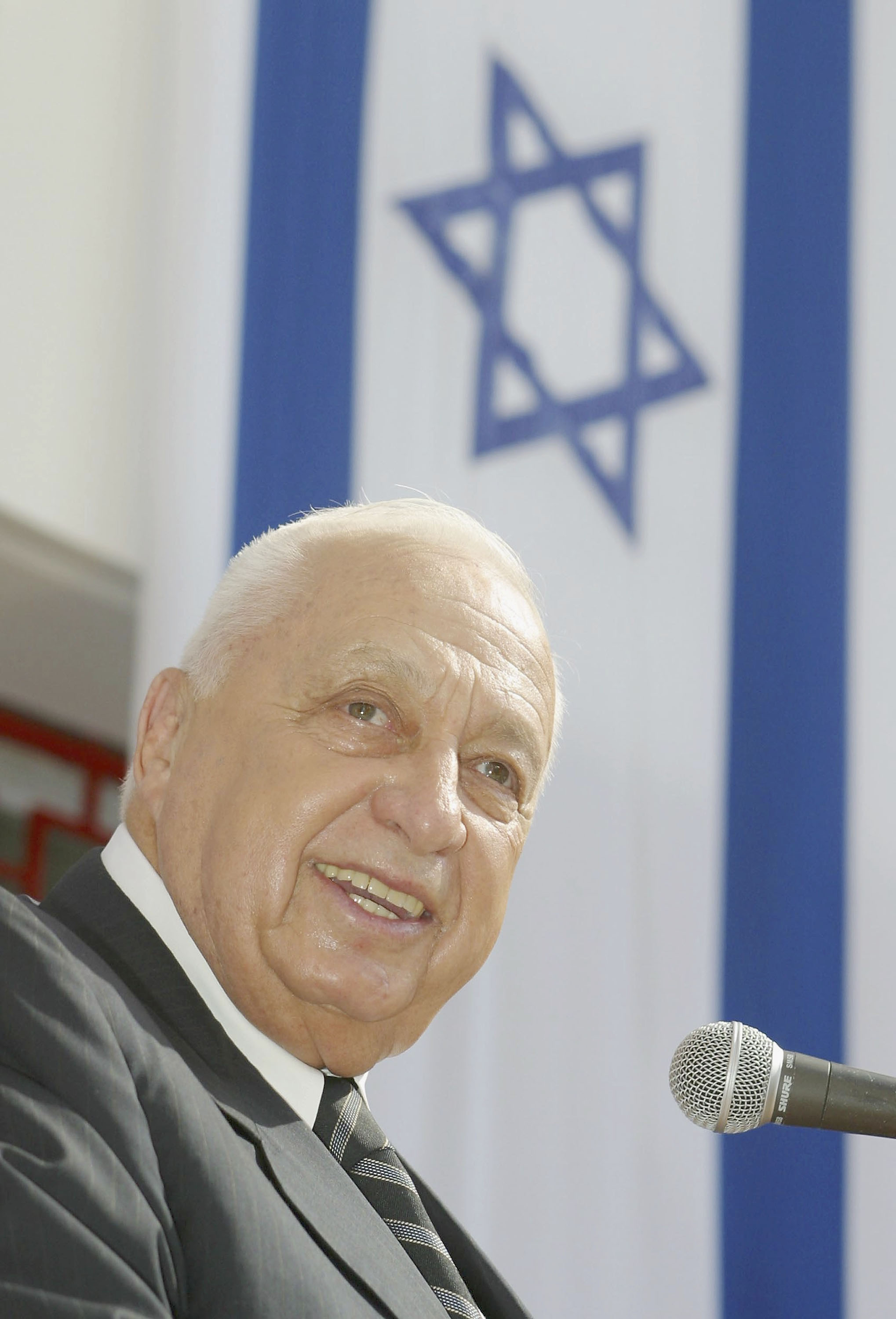
Israeli Prime Minister Ariel Sharon addresses young pupils at the Yitzhak Rabin Elementary School, on the first day of the new school year, 31 August 2003, in Netivot, southern Israel. (Photo: Yehuda Lahiani-Poo / Getty Images)
Former Israeli prime minister Ariel Sharon was a known fan of Bantustans, and he was one of the biggest advocates of their construction in Israeli settlements from the 1970s. He also wanted to adapt them into the West Bank.
Former Israeli ambassador Avi Primor wrote in his autobiography about a trip to South Africa in the early 1980s with then defence minister Sharon and recalls how much Sharon was taken by the Bantustan enterprise. Former Italian prime minister Massimo D’Alema told Israeli newspaper Haaretz in 2003 that Sharon had explained to him that the Bantustan model was the most appropriate for Palestine.
Near the end of South Africa’s apartheid regime and the first democratic election in 1994, Israel was one of the last nations to maintain a relationship with the white minority regime.
The Israeli defence establishment had long become entranced by its own propaganda and believed that apartheid would last forever. Nelson Mandela took notice. In a 1993 speech to the delegates of the Socialist International, Mandela said: “The people of South Africa will never forget the support of the state of Israel to the apartheid regime.” DM
The Palestine Laboratory: How Israel Exports the Technology of Occupation around the World by Antony Loewenstein is published in South Africa by Jacana Media.
This story first appeared in our weekly Daily Maverick 168 newspaper, which is available countrywide for R29.










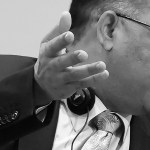










Well well…
Everyone had secret relations with the apartheid South Africa. Weren’t Gaza and the West Bank bantustans of Egypt and Jordan previously? Would Gaza and West Bank being Bantustans make the inhabitants dislocated citizens of Israel?
Is the Saharawi a bantustan?
Why do you attempt to trivialize very detailed facts in this manner? Whois the “everyone” you refer to and what was the extent of their purported involvement? Your trivialization also detracts from the crux of the article, which is that apartheid and racism is still flourishing in Israel with the complete backing and blessing of the USA, UK, Germany,etc. the supposed “good guys” in the world order. Quite sickening
During the worst of apartheid, countries who routinely stood up at the UN and lambasted SA as the “polecat of the world” with whom they’d never interact, continued to trade, both commercially and militarily as long as it was never found out or ’embarrasssed’.
This included countries with virulent anti apartheid credentials.
What made it worse is that these countries allowed the trade to develop provided it was ‘coordinated’ by their government entities who also stood to gain materially and personally and re-originised with the shipping documentation proving it came from elsewhere e.g. Mozambique.
There is substantial evidence of these countries
Singapore, China, South Korea, Japan, even Indonesia, and several other ASEAN countries as well as African countries served by overnight flights run by Safair out of Jan Smuts (at the time) made a mockery of the global fight against apartheid.
But of course the writer uniquely singles out Israel who were merely part of the pack.
Israel, according to Loewenstein was not merely “part of the pack”.
Secondly, how does the fact that other countries had relations with South Africa during Apartheid preclude writing about Israel-SA relations?
He uniquely singles Israel out despite other countries’ breaching of apartheid restrictions being far worse, more damaging and significantly more hypocritical.
Yet Loewenstein feels compelled to target Israel, a country that 40 yeas later is not the same place.
Would he smear Germany 40 years after the end of Nazism despite it being a model democracy and a friend to the world, yet 40 years on he pillories Israel for past misdemeanors that veer between pointless and malicious
Well, they did – uniquely – assist us to develop nuclear weapons, despite an arms embargo…
Israel has had the unique ability to be above the “law” since 1967 … when it ignored a UN resolution ! It has manages relentless ‘land grabs’ with impunity since. It has managed to do this because its main sponsor (for all the feigned rhetoric to the contrary!) the US has its back (iron glad!) … no matter what it does. Don’t believe a word of Biden’s ‘two states’ white rabbit he tried to pull out of the hat … just before the start of the genocide (Albanese). What he had in mind was our ‘bantustan’ model when he said it … and BB was having none of even that !
Well nobody’s interesed in, say, Denmark right now. It’s Israel that is in the news, Israel that is fighting a war.
Racism is flourishing everywhere including the race nationalism of the likes of EFF. Weakness does not confer superior morality. What is the purpose of the article except to try and justify the application of mind blocker verbalisms and slogans like apartheid, bantustan etc which at the end of the day through overuse and misapplication trivialise the South African experience and strip the words of meaning.
I suppose whoever works with Israel is into the business of apartheid!? Is France the next subject of your book? And the US of course!
Why not ? Like the US and Israeli selective abstention from being ‘party’ to the ICC Rules ? Even ‘international’ rules for that matter ?
Politics is a dirty game. I doubt there is a single country in the world, democracy, dictatorship or theocracy that hasn’t done what suits the rulers at the time. Why should Israel be treated differently? Why should it always be singled out, something that seems to be the favourite past-time of so many.
Done v doing.
Most of the content in the book was already in the public domain. But would have to search to obtain. Great idea to put all in a easily accessible book at this time when previously uninterested in the Israel/Palestine can get info and context. Always has been and still is difficult to penetrate the Israeli propaganda firewall. With all news outlets both local and international having to always clear all coverage relating to IDF , Israeli Security Services and its Nuclear establishment with the Military censor , accurate independent news very difficult or impossible to come by. The censorship that was strict before Oct 7 ,has now become even more draconian. Even going so far to target outlets and journalists that do not follow these rules.
Mehdi Hassan on his independent Ziteo channel, recently did a quick analysis of the difference in ‘language’ used by ‘mainstream media’ (CNN , BBC etc) and its so-called journalists, to describe issues/situations involving Palestinian/Israeli matters. Fascinating how demonization works and ‘selective’ featuring of news events are designed to promote a particular ideology and perspective.
Most media analysts do this (your pejorative use of the phrase “so-called journalists” is telling). If you are as objective as you want to believe on the Palestinian/Israeli matter, try also watching Douglas Murray and Ben Shapiro on their independent channels on these matters.
The Kasrils endorsement should help to sell a few extra.
Not sure who the author is (never heard of the guy, but he has a distinctly you-know-what sounding name/pseudonym that is distracting) – but he must be very (self?) important. To, inter alia, make such bold statements such as “The Israeli defence establishment had long become entranced by its own propaganda and believed that apartheid would last forever.” Not exactly objective or close to being factually provable.
FYI – for as many Nelson Mandela quotes from the pro-Palestinian lobby, there are as many from him acknowledging, thanking and praising the myriad of Jewish people who had an impact on his personal life, and who assisted in the struggle (he doesn’t mention Kasrils, ever, strangely)
As you always do you ignored all of the article not showing Israel in a good light, oh wait, that was all of the article. Next step, make a comment that will hopefully shed doubt. Then find something to dilute the message without really providing detail. Propaganda mission plan followed and actioned.
I think by “target” you mean ‘assassinate’ and ‘murder’ . Please call a spade a spade . The US (and its western allies) is/are complicit (and approve of it) in all of it (including the bombing of embassies/consulates) … hence its failure to even be ‘concerned’ let alone ‘outraged’ by all of it . An example of American hubris taken to the next level by Israel ! Birds of a feather … ?
Its called the rampant Zionist syndrome .
Great pseudo-analysis of my comment John, as always. No doubt this book, SA’s long-overdue attempt at its own Protocols / Mein Kampf, will be eagerly consumed by your ilk
Antony Loewenstein (born 1974) is a Jewish Australian-German freelance investigative journalist, author, and film-maker. Loewenstein co-founded the Independent Australian Jewish Voices (IAJV). He won the 2019 Jerusalem (Al Quds) Peace Prize, one of Australia’s leading peace awards, for his work on Israel/Palestine.
Seems like a pretty stand up guy to me – what, pray tell, are your credentials?
Fanatical Zionist .. methinks !
From your research … Leowenstein fits the Zionist ‘self hating’ Jew classification it seems… as do Profs Chomsky, Shlaim, also people like Gideon Levy, our own Zapiro et al … the list is growing daily … like the ongoing genocide across Palestine ! And Biden and co keep supplying more weapons to do it with under the pretext of ‘security’. Use the word ‘terrorists’ (as the entire ‘west’ does) and demonise a people … and you can get away with anything ! .. and its been going on since ’67 !
Thanks for giving us his credentials Rodney, which explains how he’s even less credible
The similarities between Israel/South Africa then and Palestine/South Africa now continue. Both Palestine & South Africa are ruled by terrorist organisations. Both purporting that they only became terrorist organisations to free their country from oppression. Yet neither has done much since coming to power, except to try and destroy their former oppressors. Racism & religion were at the root of this. But nothing has changed. Caucasians in South Africa are generally seen to be former apartheid supporters, simply judged by the colour of their skin, never mind that the majority voted in a referendum to end the injustices of apartheid rule.
Much the same continues in Palestine today. While Israel has flourished economically Palestinian rulers have devoted their efforts at destroying Israel, rather than building their own state and look at what an imbalance is the result.
There is a huge difference in that the ANC have been the government of the whole of SA for a generation. Palestine is not a state but rather nothing more than a bantustan split in two with no real autonomy over their own affairs.
And the US (with the blind support of its western allies) has ensured that it stays that way … despite its pretence that it is in favour of a ‘two states’ solution . And that after 6 to 7 decades !
Hahahaha
A super-bantustan split into more than 160 enclaves, in actual fact. The current state of the West Bank makes the fragmentation of the former Bophuthatswana into seven pieces seem extremely tame in comparison.
My first comment under John… was in response to Dexter m. Apologies.
This was quite a lovely read. Thank you.
Sadly, I have found a way of explaining through this matter what South African apartheid was somewhat like in a modern day context through this conflict. If you look at the Palestinian Israeli matter over its 75 years and if you were to look at our country 75 years ago dating back to 1949, you do find some similarities over the chronology of time for those that have looked at the unbiased transcripts of history after school, after control. Look at the numbers and interestingly 1949 was a year after the NATS took power and 1994, 45 years later is when another chapter begun that has its own new inequalities, fused with the undealt and carried to now in generational stories, and living landmarks. These (in their former years) were strong states defined primarily by faith to justify and develop a “sense and state of fear” which is a by product of its actions and mistreatment, and the right then to defend itself from those denied an equal opportunity around them.
How can people think that there no consequences to oppression and suffering (in its fully expressible ways) when modern day Israelis define their history through suffering and oppression…that Palestinians and those in the former Bantustans cannot hold on to their histories and stories of being people born from survivors of targeted atrocities? There are old Asian movies about revenge for “the death of my father”, which are justified in fiction just not reality which far harder to deal with. Maybe this is a reflection of weakness on humanities lived ordeals.
Again, these two states (Israel and the South Africa that found solidarity with it) were both defined in their founding identities through pain and great suffering through concentration camps, first ours through the British during the wars in South Africa (combine the timelines that are and follow the Frontier wars, Anglo-Boer and Anglo Zulu), however in our case, the cleansing of the story of such camps took the black population from being attendees in the concentration camps when evidently they were there just not in the state issued text book. By the mid period of the 1900’s there had been technological advancements that were far more less manual yet a lot more cruel, requiring less labour, conscious and enhanced cruelty with less humanity involved.
This is not the Oscars of survival and loss, its the understanding of pain, whether yours or that of another, none above another. Imperialism brought the church and also suffering (of camps) in differed but purposeful measures, England got away with it on us, and the Nazi Germany painfully upgraded it on the Jews (less the faith but idealism of Nazism), South Africa did it differently though faith and race based exclusion, and Israel currently looks to have mastered this unfortunate art of idealism(Zionism) or tool of war. Its the reason to stop it from another, any other one.
When you take faith out of this, what truly lies in this conflict as a distant observer is my question before there can be an answer. History proves that occupation, wherever it has taken place has never been to the benefit, but the detriment and then desperacy of those that were there before and then excluded. If Israel’s suffering and the angered feeling against “souties” by Afrikaners in South Africa is justifiable, why must blacks get over apartheid because 30 years is sufficient for them to get past long term, generational and for other lived history?
Mandela didn’t hug and cleanse the pain away from everyone, he couldn’t. You can’t equate pain and suffering when you haven’t been through what some still live after what was that defined yours.
A good point, well made.
I got as far as the writer praising Ronnie Kasrils, the first Stupid White Man in the ANC cabinet…
Where do you think SA got all its crude oil from during the sanctions era? Answer: Iran.
Just paraphrasing from a document titled The Protocols of the elders of Zion’ . Is says we will always let one of our own to publish our secrets in a calculated manner in order to deceive and conceal the truth. Yes the truth is out but only part of it. One question comes to mind, what is behind the close relationship of the Germanic people to the Present Israelites? Take for instance the present Germany’s stance towards Israel and the US which has a significant number of people with German background who treat Israel as a spoiled lad.
Already in 1921, a reporter of The Times (of London), Philip Graves, proved ‘The Protocols’ to be completely fictional by showing that it had plagiarized large sections of a French novel — Maurice Joly’s Dialogue in Hell Between Machiavelli and Montesquieu (1864) — a French political satire that never once even mentioned Jewish people. Other investigations revealed that one chapter of a Prussian novel, Hermann Goedsche’s Biarritz (1868), also “inspired” the Protocols.
To put it in modern terms, ‘The Protocols’ was fake news. You should not allow it to cloud your judgment or world view — it was created specifically to serve as false and antisemitic propaganda.
Exactly.
What some folks misses is that it is one thing to hate what the current government of Israel is doing, and even despise the fact that it seems to be supported by the majority of the citizens there(some of them actively block aid trucks going to Gaza)
But believing conspiracy theories about Jews controlling the entire banking and financial system in the world, puppet-controlling most governments, etc, that’s crazy.
Read Chris McGreal’s enlightening articles on this subject in The Guardian. Shockingly unsurprising.
“A majority of these Jews benefited from South African apartheid and supported its continuation.”. Absolute rubbish! The Jews did not support apartheid or the Nationalist government. “By the mid-1980s, the SAJBD was speaking out more forthrightly against the apartheid policy. At its national conference of 1985, and again in 1987, the Board explicitly rejected apartheid. It also released statements condemning evictions of black leaders and pass-law arrests, detention without trial, a university quota system for blacks, and the treatment of black squatters near Cape Town” – Jewish Virtual Library.
1. The article says majority, not all.
2. SAJBD did not represent all the Jews in RSA, even today it does not represent all the Jews.
The article doesn’t address the root cause of why Israel’s pro-African independence stance switched towards a political relationship with South Africa. Post 1967, middle eastern countries used oil money to buy African votes at the UN, which isolated Israel from previous allies. Ignoring this key detail highlights the agenda of the author. Quick search on the Internet discussing the ‘weaponisation of oil’ will provide this detail.
There’s a whole book. I think the balance that the author strikes there is what he should be evaluated on, not for failing to include every aspect and factoid in this extract (which would be impossible).
During the 1980’s Iran supplied South Africa with parts for the Mirage Fighter F1AZ and F1Cz. With the arms embargo being instituted against South Africa, the Dassault Aviation facility in France halted aircraft parts from being imported into South Africa, however, Iran had a fleet of Mirage’s and South Africa was ordering aircraft parts directly from Iran. How do I know this? Because during the 1980’s I was based at Airforce Base Waterkloof and one of my jobs was to pick up the parts that had been delivered. I quite clearly saw the paperwork and the origin of these purchases. Whether this was tacitly supported by France, I don’t know. Israel was far from being exclusive in its dealings with apartheid South Africa. Some of South Africa’s current “best friends” like Iran were dealing with the apartheid government as well.
Iran and the Soviet Union also had a special relationship with South Africa. Very transactional. Even after the Islamic revolution.
Virtually all South Africa’s imported oil came from Iran and the USSR – sanctions busting.